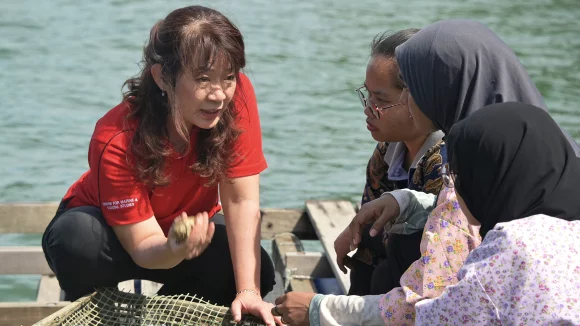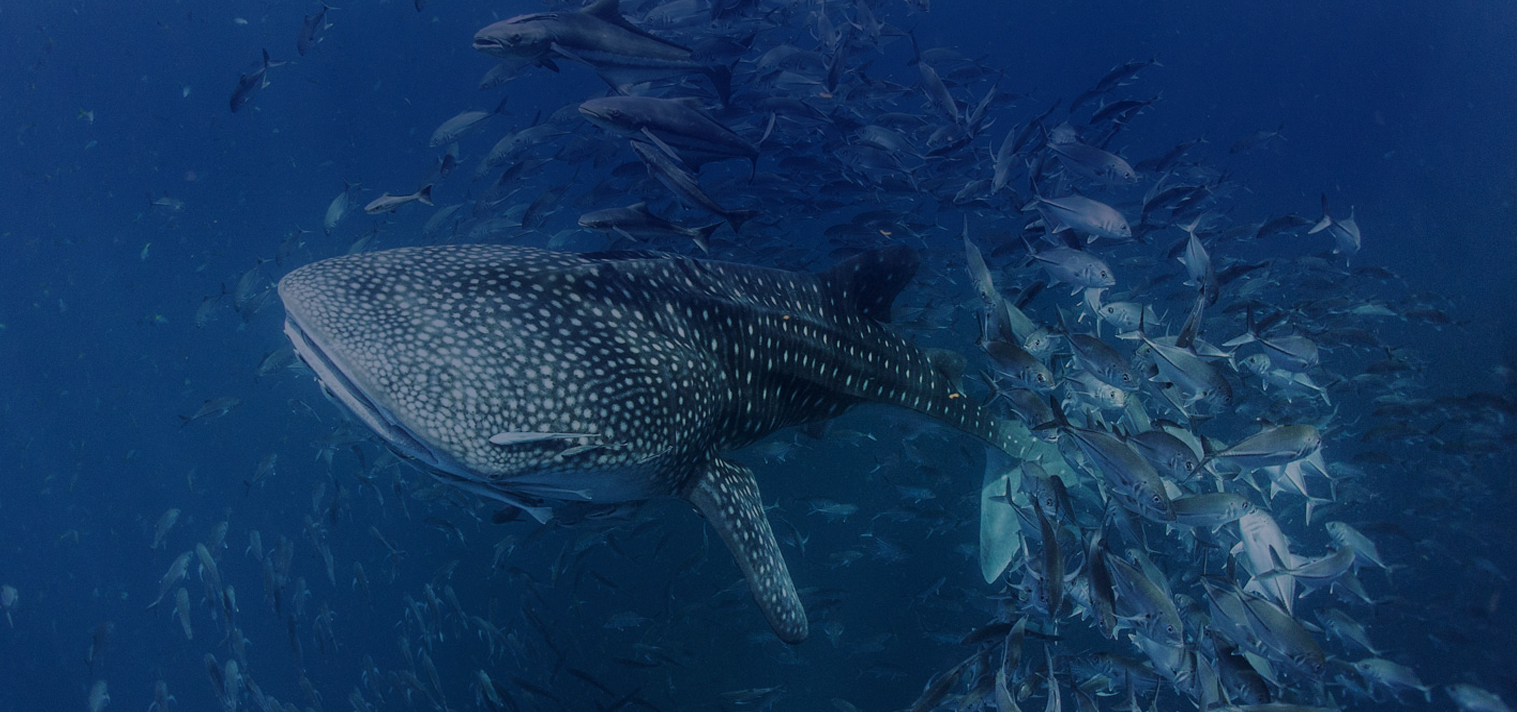TAKE ACTION COMMUNITY VISION 2030: WORKING GROUP 2 MEMBERS COLLABORATE TO STRENGTHEN THE PROTECTION AND RESTORATION OF OCEAN ECOSYSTEMS AND THEIR BIODIVERSITY
Encompassing 71% of the Earth’s surface and with an average depth of 4,000 meters, the world’s ocean poses significant challenges when it comes to comprehending the dynamic changes in marine life. Through its Challenge 2: “Protect and restore ecosystems and biodiversity”, the United Nations Decade of Ocean Science for Sustainable Development 2021-2030 (‘Ocean Decade’) aims to enhance understanding of the effects of multiple stressors on ocean ecosystems and develop solutions for effective conservation and restoration.

29 janvier 2024
Marine ecosystems and biodiversity provide essential benefits, including crucial resources such as food, water and medicine, as well as climate regulation and coastal protection. Acquiring up-to-date information and insights into the transformation of marine resources, their distribution and connectivity, ranging from the ocean’s surface to its deepest depths, is therefore key to sustainably manage, protect and restore marine and coastal ecosystems.
To this end, Ocean Decade Challenge 2 seeks to develop tools to implement management frameworks that build resilience, recognize thresholds and avoid ecological tipping points. The goal is to ensure everyone has the opportunity for a better life, to secure better employment and to participate in a thriving economy.
Established as part of the Vision 2030 process, Working Group 2 amplifies the efforts to tackle Challenge 2. It is led by two expert co-chairs, Frank Muller-Karger, Professor in the College of Marine Science, University of South Florida, USA, and Aileen Tan Shau Hwai, Professor at the School of Biological Sciences, Universiti Sains Malaysia (USM).
Over 20 experts, specializing in multidisciplinary ocean observing, education, the private sector and international programme coordination, identified gaps and priority needs in order to define key indicators for achieving Challenge 2 by 2030 – a strategic ambition that integrates conservation, restoration and judicious resource utilization in the long term.
In this context, Aileen Tan Shau Hwai highlighted the cross-cutting priority of enhancing protection and restoration of ecosystems in a dynamic environment throughout the Ocean Decade.
“Ocean Decade Challenge 2 is interconnected with all of the Ocean Decade Challenges, emphasizing collaboration and partnerships between scientists and users,”she said. “The ultimate goal is to improve the understanding of marine life and ecosystems to benefit future generations through sustainable development and conservation. Most importantly is translating the science to actionable solutions.”
The achievement of this ambitious goal hinges on local engagement and self-management within the framework of international and interdisciplinary cooperation, while leveraging advanced technologies and scientific knowledge. Recognizing the critical role of effective data and knowledge mobilization, Working Group 2 advocates for improvements in biodiversity databases and the adoption of standardized data formatting and sharing practices.




